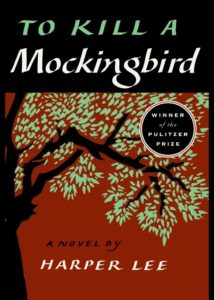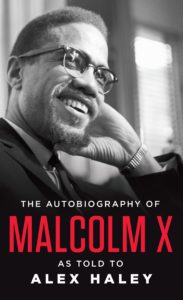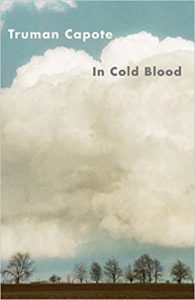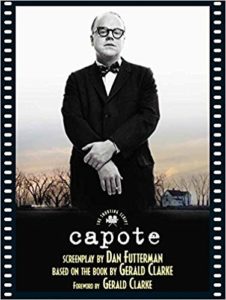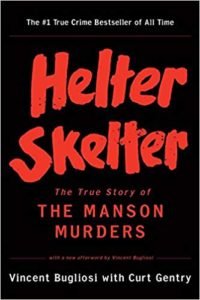The publication of my first legal thriller in 1994 (The Pardon) marked the debut of Jack Swyteck, a Miami criminal defense lawyer who couldn’t figure out why the world turned against him when he transformed from a law student (“Oh, your parents must be so proud of you!”) to a practicing attorney (Ewww—you’re a “lawyer”). Twenty-five years later, Jack is still going strong, making him a true survivor in the legal thriller genre.
Debate if you will whether a thriller is “literature,” but walking in Jack’s shoes for most of my adult life has shaped my view on what is meant by “law in literature.” Writing novels and practicing law is more than enough to keep me busy, but last year I started teaching a course called “The Law and Lawyers in Modern Literature” at the University of Miami School of Law—which prompted my wife to remind me that someday I need to decide what I’m going to be when I grow up, but that’s another story.
When I tell people about my course, they usually want to know what I ask my students to read. They’re pretty surprised to hear that my list sometimes includes Bob Dylan’s hit song The Hurricane (“Rubin Carter was falsely tried”) and Mutiny on the Bounty (the original “legal thriller,” but only if you forget the films and remember the courtroom scenes from the novel). My list is fluid. Some are on it simply because I like them; others, because they channel my view that “law in literature” is the exploration, through literature, of what law, lawyers and the legal system can and cannot tell us about “truth.”
Whoa. Too deep, right? You just want to be entertained. I get it. Not everyone wants to think that hard. But everybody loves lists. So here’s mine: five essential reads for anyone who thinks legal thrillers are just too much fun to be good for you. Fair warning: some of these listings are actually pairings, so the list of five has more than five. So sue me.

A Man for All Seasons (Robert Bolt, 1960)
It’s the story of Sir Thomas Moore, who was tried for treason and beheaded after he refused on principle to sign an oath approving the marriage of King Henry VIII to Ann Boleyn. I read the play in high school, and it stuck with me throughout my career as a lawyer, especially early-on, when I was young and naïve and appalled to discover how many witnesses lied under oath. People complain that lawyers are always trying to trip them up with their clever questions, but in my experience witnesses too often had to be tricked into telling the truth. In my most cynical moments as a trial lawyer, I’d go back to Sir Thomas Moore and the sanctity of an oath. And now, as a writer, I never forget how important it is to be honest with my readers.
To Kill a Mockingbird (Harper Lee, 1960) and The Autobiography of Malcolm X (Malcolm X, as told to Alex Haley, 1965)
Countless lawyers have pointed to the fictional character Atticus Finch as the source of inspiration to become a lawyer. Malcom X as a boy dreamed of becoming a lawyer, and he states in his autobiography that he “would have been a good one.” Atticus vs. Malcolm: In today’s world who would Tom Robinson (the black man falsely accused of raping a white woman in Lee’s classic) choose to be his lawyer? Put another way, would a lawyer who works the system or attacks the system more effectively expose the truth? It’s a question that sparks some of the most spirited debates in my classroom.
In Cold Blood, (Truman Capote, 1965) and Capote, the Shooting Script (Dan Futterman & Gerald Clarke, 2006)
In Cold Blood is a true-crime narrative that details the 1959 murders of four members of the Clutter family in a small farming community in Kansas. Capote spent five years meticulously researching the crime, including interviews of the two men convicted of the murders, Dick Hickock and Perry Smith. He grew especially fond of Smith and played a significant role in the events that shaped the “non-fiction novel,” yet he doesn’t appear in it. This void is filled in the film “Capote,” which raises a legitimate question: Was Capote manipulating truth by leaving himself out of the book?
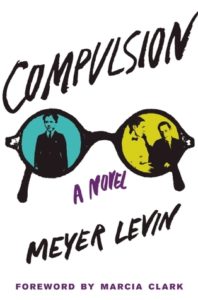
Compulsion (Meyer Levin, 1956)
A true story. Based on a true story. Based on actual events. Inspired by a true story. Inspired by actual events. An idea I got from some guy sitting next to me on the train. Compulsion will get you thinking about this sliding scale of “truth” in ways you may not have considered before. It’s a “fictionalized account” of the Leopold-Loeb murder case in which two young graduates of the University of Chicago kidnapped and killed a fourteen-year-old boy for the intellectual challenge. They were defended by Clarence Darrow, perhaps the most famous criminal defense lawyer of the twentieth century, and in the film adaptation, Darrow is played by Orson Wells, one of the greatest film makers ever. And the kicker: the novel is written by Meyer Levin, a former classmate of the killers. I’m not saying it’s the greatest book you will ever read, but it’s an intriguing prompt for discussion of the contemporary trend toward blurred “truth.”
“Anatomy of a Murder” (John Voelker, writing as Robert Traver, 1958) and Helter Skelter (Vincent Bugliosi, 1974)
It’s impossible to overstate the impact prosecutors and criminal defense lawyers have had on “law in literature.” So why wouldn’t you want to read two of the most influential works from opposite sides of the courtroom, even if their books aren’t technically “thrillers”? I give my students a pass on reading Anatomy if they prefer to watch the film, directed by Otto Preminger. It’s that good.
The Firm (John Grisham) and Presumed Innocent (Scott Turow)
Okay, so my list of five is actually six. I teach law in literature, not accounting. These books are not at the core of my course theme on “truth through literature,” but they were game changers for the legal thriller genre, triggering a mad rush by publishers and literary agents to find “the next Grisham or Turow.” But for these books, countless lawyers-turned-author would never have been published, myself included. I truly believe that. But don’t tell Jack Swyteck.
(© 2019 James Grippando. All Rights Reserved.)


